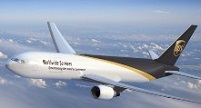International express operators have stepped up security measures after the dramatic discoveryof bombs hidden in US-bound shipments on UPS and FedEx flights last Friday (October 29). The foiled
plot has raised worldwide concerns about air cargo security.Two small separate bombs were found in shipments from Yemen destined for Jewish religiouscentres in Chicago. The two bombs, which were disguised as electronic circuitboards and hiddenwithin printers, contained explosives and timing devices. Both shipments had already passed throughinternational airports before being discovered following tip-offs from the Saudi intelligenceservices.
The first shipment was apparently flown on separate Qatar Airways flights from Yemen to Doha andthen to Dubai, according to international media reports. It was discovered at the FedEx facility atDubai international airport from where it was scheduled to be flown by FedEx to the USA. Thecompany confirmed that “a suspicious package” had been confiscated by local authorities at itsfacility in Dubai on October 29.
The second package was apparently also flown from Yemen on Doha on a passenger flight and fromthere it was loaded on a cargo flight to Cologne. There it was loaded on a US-bound UPS cargo planethat first flew to East Midlands Airport in the UK where the item was discovered. Moreover, threeUPS planes were accompanied in to land at Philadelphia and Newark following reports of suspiciouspackages but their cargo was later cleared by the Transportation Security Administration (TSA).
It is unclear whether the two bombs were intended to be exploded in mid-air or at theirdestinations in the USA. The terrorists could not have known what route the shipments would takeand which type of aircraft they would be flown on, according to experts. After the incident, theTSA imposed a general embargo on shipments from Yemen, and both UPS and FedEx confirmed that theyare no longer accepting shipments to or from the country.
UPS Airlines spokesman Mike Mangeot told CEP-Research: “UPS takes a multi-layered approach toensure security. We have processes, systems and procedures in place designed to protect our people,aircraft, and customers’ shipments. We work routinely with security agencies all over the world tomaintain and enhance security as well. These relationships are an important part of our securitynetwork and instrumental in this case. The fact that the suspect packages were flagged is evidencethat the system works.” He also stressed there was no suggestion of any terrorist link to the fatalUPS plane crash in Dubai in September.
A Deutsche Post DHL spokeswoman told CEP-Research that DHL Express had stepped security at itsLeipzig hub. “We have a very robust security regime that meets all international standards. Therewas a request from the German transport minister to all cargo airlines to inspect shipments fromYemen particularly closely,” she stated. This referred to shipments sent prior to the internationalembargo on new shipments to and from the country.
A TNT spokesman said: “TNT’s global security department found that no shipment originatingfrom Yemen had entered TNT’s network in the same time frame. The few shipments originating fromYemen always pass through Dubai, where they are screened and x-rayed. TNT does not operatededicated flights to/from Yemen and uses third-party capacity between the country and Dubai.” Thecompany had put an embargo on all shipments from Yemen since 29 October.
“TNT is monitoring regulatory initiatives on cargo security from national and internationaladministrations. TNT already applies strict security measures in cooperation with transportationsecurity officials. In the coming weeks, TNT will review its own aviation security managementsystem to see if it can be further improved,” he added.
However, the incidents have sparked off a massive international debate about air cargo security.Experts have warned that the absence of 100% screening or scanning of air cargo shipments createssecurity gaps. German interior minister Thomas de Maiziere criticised the relative lack of securitymeasures for international air cargo shipments. But observers point out that the costs of 100% aircargo screening would be substantial and such measures would inevitably impact on the supply chainin terms of shipment transportation times.
TSA Administrator John S. Pistole stated: “Working together with our international partners,late last week, the U.S. and key allies disrupted an attempt by a determined enemy to conceal andship explosive devices on board aircraft bound for the U.S. At the direction of the President andSecretary Napolitano, the Transportation Security Administration (TSA) and Customs and BorderProtection (CBP) immediately took additional measures to enhance existing protocols for screeninginbound cargo, including grounding packages originating from Yemen destined for the United Statesand deploying a team of inspectors to assist the Government of Yemen with their cargo screeningprocedures.
“Even before this incident, 100 percent of identified high-risk cargo on inbound passengerplanes was being screened. Further, all cargo flying to the U.S. on passenger or all-cargo planesis held to TSA security standards that include specific requirements covering how facilities andcargo is accessed, the vetting of personnel with access to cargo, employee training and cargoscreening procedures. All international inbound aircraft carrying cargo must provide cargo manifestinformation to our partners at CBP prior to arrival on long-haul flights and at wheels-up onflights from Canada, Mexico, and the Caribbean, for additional screening upon arrival in the U.S.We continue to work with our international partners and the private sector to meet these screeningmandates.
“Pursuant to the 9/11 Act, we have taken significant steps to strengthen the security ofinternational air cargo. As always, TSA will continue to evolve our security procedures based onthe latest intelligence to further strengthen air cargo security.”












